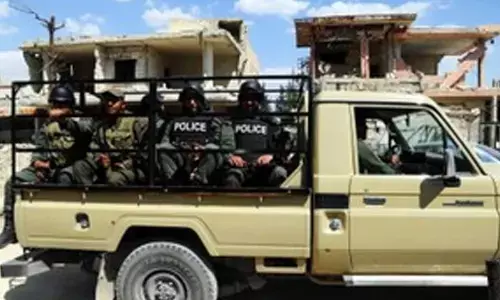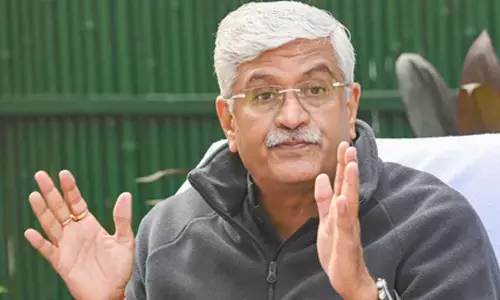Taxi rape: Who should answer?

Defective transport policies facilitate crimes, especially sexual assaults in taxis, that we are hearing in Delhi. The Delhi Transport Authority (DTA) has a statutory duty to inform about measures to check accused drivers like Siva Kumar Yadav who has beaten up before raping a woman passenger in a moving taxi.
Defective transport policies facilitate crimes, especially sexual assaults in taxis, that we are hearing in Delhi. The Delhi Transport Authority (DTA) has a statutory duty to inform about measures to check accused drivers like Siva Kumar Yadav who has beaten up before raping a woman passenger in a moving taxi.
Every public authority should understand that they are not dealing with lifeless bunch of papers called file. The norms and conditions they are supposed to impose and implement will deal with human beings—citizens of this country security of whom is the Constitutional duty of the state, represented by the officers, who are being paid huge salaries from the taxpayers money. When they see files, they should remember life of a citizen, who could be their family members. They should add life to file.
Second appeal of Rakesh Agarwal, leader of an NGO working on reforms in transport regulation, has come up for hearing on December 23, 2014 before the Central Information Commissioner, yours truly. It is an alarming aspect that certain taxis are left free on the roads without any policy prescription for such verification and mandatory training. Recent sexual assault on a woman by the driver of a Tourist Taxi operating through a mobile-app based company Uber could have been prevented if the transport authorities prescribed and enforced the permit conditions.
In this RTI application, appellant Rakesh Agarwal sought information regarding files of the auto rickshaws registered in 2013; copy of permit conditions for Black & Yellow taxi, Radio taxis, Economy Radio taxis, Tourist taxis, Gram Sewa vehicle and copy of permit conditions applicable to auto rickshaws.
Reply of the CPIO surprised him. No special permit conditions were prescribed for Black and Yellow taxis (DL 1 T type) and for Tourist permit taxis (DL 1 Y type). This means that these taxis can ply without obtaining particular badge. If driver was caught he could simply walk free after paying maximum fine Rs 100 cash on the spot. It is rightly contended that the Transport department should have imposed permit conditions for plying of these taxis, and in contravention they should be penalised to pay Rs 10,000 in a traffic court and/or a prison sentence up to one year under Section 192 A of Motor Vehicle Act, 1988.
The transport authority should have imposed permit conditions for plying of these taxis, and in contravention they should be penalised. The process of issuance of badge entails four things:
i. the driver needs to undergo 3 days mandaory training in soft skills,
ii. his address is verifired through local police,
iii. his crime record and antecedents are verified through National Crimes Records Bureau, and
iv. police verifies his reputation in the local area by making enquiries in the driver’s neighbourhood. The police investigating authorities who listed some norms flouted in this crime of taxi rape:
a. The accused driver Shivkumar Yadav did not undergo the mandatory police verification, and a background check was not conducted by the company.
b. He did not have a driving licence issued by the Delhi Transport Authority, which is recommended for those engaged in driving cabs in the capital.
c. Instead of a mandatory GPS system, the only link with the driver was an application that he had downloaded on the phone he was using.
A simple verification of driving license could have revealed the real character of this cab driver, who was having a long criminal history of being a serial sexual offender, accused of molestation in 2003, booked under Arms Act in 2006, robbery in 2013 in Manipur, rape in South Delhi’s Mehrauli in 2011 (assaulting a bar dancer) and also in a rape case in 2013 being released on bail, prior to which he spent seven months in Tihar Jail. The fact that he was driving taxi in Delhi for last several years shows how lax our transport authority’s governance was.
Vulnerable Delhi
The very fact that no conditions are there in the first place for taxis makes Delhi a very vulnerable place, especially for women and more so at night. The public authority should have learnt either from Nirbhaya episode [December 2012] or from crime of beating and raping a 27-year-old woman in a hired his vehicle driven by accused Shiv Kumar Yadav, who had criminal history of being sexual predator [December 2014]. Effective and good governance besides strict enforcement of norms alone prevent crimes.
Explain defective policy
It is the mandatory responsibility of the Transport Department to explain their policy in which certain taxis do not require any badge or to follow stricter conditions, under Section 4(1)(c) and (d) of RTI Act, especially when these adiminstrative decisions and policies are seriously affecting the safety of people at large in the national capital city. Section 4(1)(c) and (d) of RTI Act, 2005, say: (c) publish all relevant facts while formulating important policies or announcing the decisions which affect public; (d) provide reasons for its administrative or quasi-judicial decisions to affected persons.
The Transport Authority is directed to inform a) why such an effective regulatory permit conditions were not imposed, b) in the absence of it what measures they have in their power to restrict sexual crimes in the transport vehicles in streets of Delhi and c) whether they are considering any other permit conditions to be imposed, if not the above, to check the criminal conduct of drivers, and their irresponsible employers.
The Transport Authority has to inform the public in general, women in particular and the CIC, why effective regulatory permit conditions were not imposed, what measures were taken to restrict sexual crimes in the transport vehicles in streets of Delhi and whether it was considering any other permit conditions to be imposed, if not the above, to check the criminal conduct of drivers, and their irresponsible employers.
The transport authority should have taken crime on wheels as serious phenomenon and to secure the prestige they are supposed to take strict measures for effective governance of transport administation.
By: Madabhushi Sridhar


















